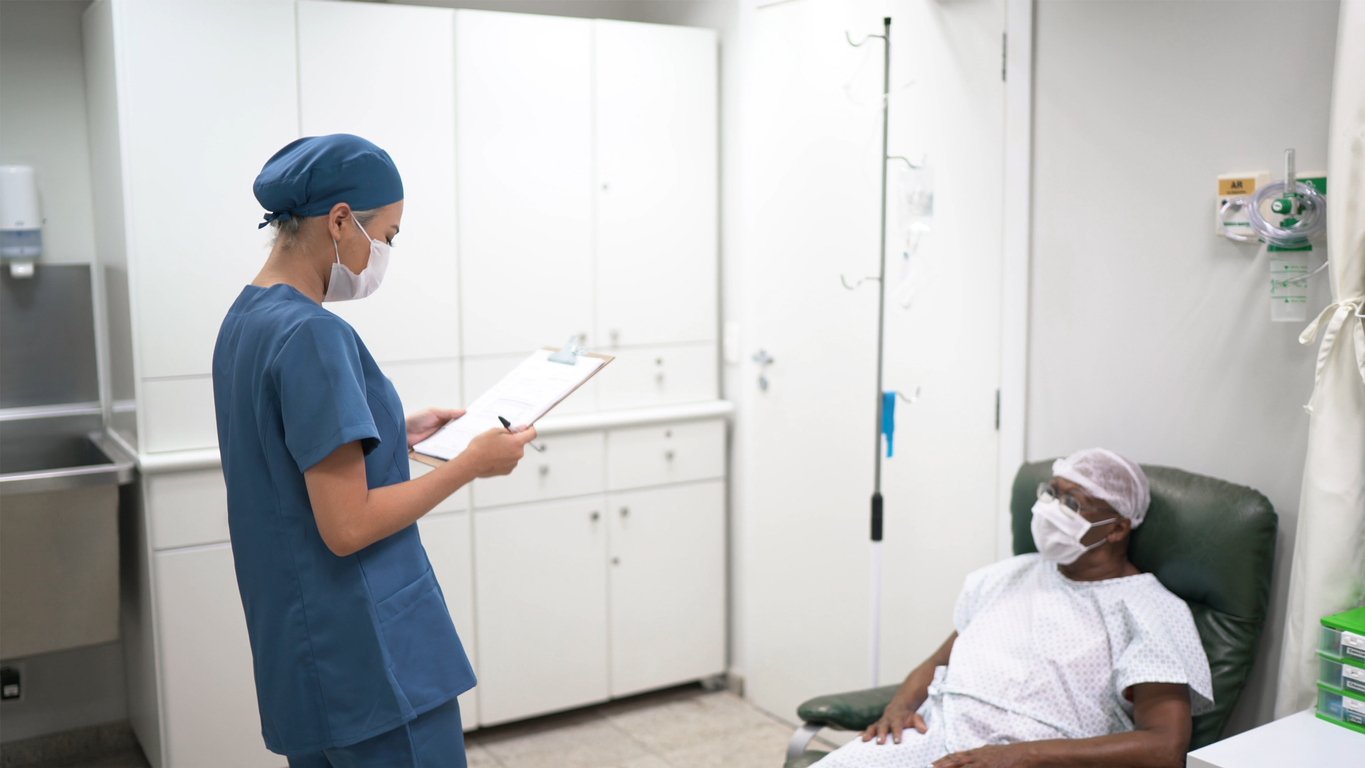The Department of Health recently launched a consultation on the effects of climate change on the health sector. Sarah Gallagher talks to members of the Irish Doctors for the Environment about the links between climate change and health and why doctors should be leaders in the area
The Irish Doctors for the Environment (IDE) formed in autumn of last year when several doctors realised that they had a shared interest and passion for environmental issues. There had been another environmental doctors’ group in Ireland previously – the Irish Doctors Environmental Association. This was established in 1997, but ultimately disbanded following an extraordinary general meeting in 2017, due to a lack of growth in membership.
The IDE has grown largely by word of mouth and social media, according to committee member Dr Sandra Green, respiratory registrar with the Mater University Misericordiae Hospital.
Dr Green said the growth between late 2018 and to date has proven that there is “ an appetite out there” among doctors who want to make a difference to the environment.
A committee WhatsApp group formed and now has approximately 80 members. IDE also boasts a 600-strong mailing list and hundreds of followers on all of its social media accounts. IDE is affiliated with a number of environmental and healthcare organisations, such as Stop Climate Chaos, Health Care Without Harm, and Clinicians for Planetary Health.
Structure
IDE members do not have fixed roles or titles. Members believe that the lack of titles and hierarchical structure “empowers” them in the pursuit of their goals. Dr Eimear Duff is a SHO who is currently carrying out a full-time MBA in Trinity College. She told the Medical Independent (MI) that “the leadership and kind of organisation model for the IDE is actually really empowering, because it’s very much a sense of shared and distributed leadership”. The members of the IDE range from students to consultants. The decision not to assign named roles and positions comes from the fact that the first IDE members were SHOs and many members work for short periods in a variety of locations. The amount of time members can dedicate to the IDE fluctuates and jobs are shared accordingly.

The group operate through a series of working groups. Each working group has an individual aim and responsibility. For example, one group aims to encourage healthcare facilities to divest from fossil fuels, while another encourages sustainable diets in healthcare facilities. There is also a “green medical conference” group and a group to push for the inclusion of climate change in the medical curriculum.
Dr Duff said there is no competition between the groups and they are all “united, for the common goal”.
According to Dr Green, “the wins are shared by everyone and the way we get things done is not by saying ‘well I’m the boss of you so you have to do that’. It’s about: ‘There is a job that needs to be done, who wants to do it?’ or ‘Which group wants to do it?’”
Diversity
The IDE, many of the founding members of which are females, is keen to have a diverse membership.
“We’re trying to include more men, but also include more people from different areas, because I think we found ourselves being very much hospital-based doctors.”
Dr Green thinks that the broad spectrum of career specialties that exists within IDE is beneficial to the members. She said, “… you don’t have many things where consultants from obstetrics would be meeting with psychiatry of old age, who would be meeting with the gastroenterology consultant – which is really nice.”
She looks forward to seeing how the members’ different ways of practising might come together in future.
Climate change consultation
Recently, Minister for Health Simon Harris announced details of a public consultation on the impacts of climate change upon the health sector. The consultation, which outlines six climate scenarios and their health implications, will inform the Department of Health’s five-year plan on climate change and health. These scenarios are: UV/sun exposure, air pollution, windstorms, heatwaves, high precipitation/flooding, and extreme cold snaps (see panel).
A Climate Change Adaptation Plan for the Health Sector is currently being developed in line with the Climate Action and Low Carbon Development Act 2015 and the National Adaptation Framework. The intention is that this plan will describe the main climate change-related risks and vulnerabilities Ireland expects to face in the health sector in the next five years and propose concrete, cost-effective adaptation measures the country can take to help reduce these risks.
The consultation and the plan has been the subject of much discussion among IDE committee members. The group is compiling a formal response to the consultation document.
“All of those six weather changes and all of the overall change will affect people in a more global sense than one specific thing,” said Dr Green, giving the example of heatwaves. She said heatwaves will reduce people’s resilience to air pollution while also impacting food crops. Poorer crop yields will have an effect on nourishment, which in turn will further reduce a population’s ability to withstand air pollution.
“The other thing we wanted to … touch on with the consultation is that we already work in a health system that is squeezed and whether you divide it into six weather events or indirect or direct effects, we know that people are going to have more health problems with climate change,” according to Dr Green.
“If we already are struggling to cope with the disease burden that we have in the country how are we going to cope down the line? In a system that’s not very resilient, [there’s little] leeway to give here and there if slightly more people are sick one day than another.”
In their formal response to the matter, IDE will outline that, in addition to the weather changes and their direct impacts on health, Ireland needs to pay attention to the indirect impacts that climate change will have on the nation’s health. These changes, as well as societal changes, should be taken into account when reforming the national approach to health. It also states that while the six named impacts are “very real”, they are likely to occur on a smaller scale in a temperate and high-income country like Ireland.
The IDE lists changes in patterns of disease-carrying insects’ migration and potential changes in the prevalence of waterborne illnesses as potential secondary health impacts that climate change will have. Climate change can lead to undernutrition and mental illness due to altered agricultural production and food insecurity and climate change exacerbates existing disease burdens on “those with the least capacity to adapt”, according to the IDE’s response.
IDE members are very aware of how people from disadvantaged backgrounds are already disproportionately affected by health complaints. Dr Green mentioned that while homeless people account for a small percentage of the population, at any given time they make up 10 per cent of emergency department attendances.
“It’s going to be the marginalised and disadvantaged … who we know are going to be more vulnerable to these changes in climate and they’re going to be less resilient,” said Dr Green.
On 20 August three members of the IDE met with officers from the Department of Health to discuss the National Adaptation Plan. The outcome of this meeting was the proposal of 13 aims that the IDE say will be incorporated into the National Adaptation Plan. These aims fall under three headings proposed by the Department: Health of population, continuity of services and emergency preparedness.
The Department has given the IDE an extension on their deadline to submit a response to the consultation, to allow for coalition with other organisations that IDE is working with. They are still preparing this document and they now have the submission deadline of 9 September.
Aims
Another IDE committee member, Dr Rachel MacCann, locum in Beaumont Hospital, Dublin, told MI that creating “national change” is a significant goal for the IDE. Dr MacCann cites the motions proposed at the IMO’s annual general meeting in April of this year as evidence of the group’s desire to put environmental issues on the wider policy agenda.

These motions included calling on the Government to prioritise access to healthy and sustainable food at all Government-funded facilities, to incentivise sustainable and penalise unsustainable energy provision, and to call on the Government to increase investment in cycling and walking to 20 per cent of the transport budget. All of the IDE’s proposed motions were carried.
In April of this year, the IDE also signed an open letter to the Taoiseach, along with the Irish Heart Foundation, the Irish Cancer Society and several others, calling for active travel – walking and cycling – to be made an integral part of the Climate Action Plan.
According to Dr MacCann, educating the doctors about the environment and “leading change” in the area are other long-term goals for the group.
Dr Sadhbh Lee, an obstetrics and gynaecology SHO in University Hospital Galway, expressed the hope that the consultation on climate change marks the beginning of the Government giving greater priority to environmental issues.
“It’s great now to see that they’re actually looking for consultation on it … getting it on the agenda and getting system changes, as opposed to just individuals, is really important.”

Dr Lee also believes as doctors are a trusted public service, it is especially important that they speak out about issues as significant as the environment and climate change.
“People trust you … you’re involved in helping people make decisions about their life … your voice, it carries a lot of weight, so I think you have to use your platform as well in that sense,” she said.
The IDE also wants to see environmental issues be given greater priority within healthcare. Dr Green feels that healthcare is now the “new face of climate change”.
“Like plastics, for instance, in the last year has been the big one,” Dr MacCann said. “I think it’s now that health is becoming the new topic of conversation and I think that’s really interesting, because we’re seeing a lot more different types of people talking about it; not just doctors, but now the Government too.”
Dr Green takes the example of giving patients an inhaler; it can help ease of breathing and possibly reduce chance of infection in the body.
“That’s all really good, but if you’re going to be sending people out into an environment that they’re going to be exposed to more and more infections, exposed to more and more dust… what good are we achieving in the hospitals if we aren’t addressing the world outside.”
Advocating for a healthier environment is part of a doctor’s greater role, according to Dr Lee. “I think it’s part of your duty toward your patients as well that you want to advocate for a healthier environment, a healthier ecosystem for them because of that. So you’re promoting it because it is support for everyone, but also as part of your clinical duty.”
In the future the IDE hopes to prioritise actions such as obtaining official charity status, creating a member registration process and joining the Irish Environmental Network or Environmental Pillar, among others.
dotMD
The IDE has also contributed to helping the dotMD conference, which is taking place in September in Galway, a green event. Dr Duff is an intern for dotMD, and offered her assistance in making the conference more environmentally sustainable.
Dr Duff recently wrote an article for this newspaper outlining how it can be possible to make a large conference like dotMD greener. The conference will be more environmentally sustainable than before through actions such as donating leftover food to charities and recycling lanyards.
Making a difference
Dr MacCann returned to the subject of how climate change can impact on people’s health, taking the example of air pollution.
“There’s been unprecedented levels of nitrogen oxide in certain parts of Dublin and that’s been linked to lung problems like asthma and COPD as well as just increasing people’s risk of chest infections. So that’s kind of one example for instance of how people’s day-to-day health is affected by climate change.”
She thinks that getting doctors involved in the environment is important in light of situations like this, “because we’re the ones who will have to see the impact of that when people go to hospital or GP clinics”.
Dr Green said “a lot of the talk around climate change is so gloomy and we’ve always tried to keep it positive. You have to put an approach on it that people can do something, that we still have time to change this and to turn it around.”
Six climate scenarios with profound health implications
UV/sun exposure
Climate change may result in people living in Ireland having increased exposure to ultraviolet radiation (UVR) due to higher levels of ambient UVR as well as due to changes in human behaviour including more time spent outdoors in the warmer weather. As most Irish people have fair skin we are particularly vulnerable to UV damage and at a higher risk of skin cancer. The potential magnitude of climate change compounding this pre-existing vulnerability makes UV a pressing concern that has already arrived. Skin cancer is the most common form of cancer in Ireland and it is increasing rapidly. Currently, over 11,000 cases of skin cancer are diagnosed each year, including over 1,000 people diagnosed with melanoma – this is double the number of 10 years ago and is projected to more than double again by 2045.
Air pollution
Older adults, individuals with chronic disease, children, and those in deprived communities living near busy roads are particularly vulnerable to the health impacts of poor air quality. Climate change is expected to aggravate existing health risks through weather-driven increases in air pollutants such as ozone and particulate matter (PM). The current magnitude of premature mortality from air pollution and the potential of climate change to exacerbate this makes this scenario a very serious risk. In Ireland, it is estimated that 1,050 premature deaths occurred in 2014 secondary to PM2.5 and 20 premature deaths occurred secondary to ozone.
Windstorms
Immediate and visible climate change-related risks to Ireland are in the form of extreme weather events. Ireland has experience of events in the recent past, such as Storm Ophelia, in 2017 when three people died, there was significant disruption in road infrastructure and power and in the health service there was widespread disruption to outpatient services, hospital procedures, and discharges. While deaths directly attributable to such events may be low (not least because of the effective national adaptation action of the population staying at home), the extent of injuries or illness and the health impacts of rescheduling elective procedures are not currently measured or assessed.
Heatwaves
While warmer weather may reduce the risk of cold-related illness and may potentially improve wellbeing and physical activity levels, extreme heat and heatwaves are also projected to increase in frequency. Extreme heat can cause heat exhaustion and heat stroke as well as aggravate pre-existing health conditions such as cardiovascular, respiratory and neurological disorders. Significant increases in Ireland’s elderly population and a projected rise in the numbers living with chronic disease will amplify the health impact of more frequent extreme heat, which will place an additional burden and higher utilisation of healthcare services. Most significantly, heatwaves are responsible for excess deaths every year. Some 70,000 premature deaths were attributed to the particularly extreme heatwave across Europe in 2003. A recent study attributed 294 excess deaths to heatwaves in Ireland over the last three decades.
High precipitation/flooding
Ireland has experienced an increase in annual national rainfall (60mm) in recent decades, especially in the west of Ireland. Climate change projections foresee a possible notable increase in the frequency of heavy rainfall events for winter and autumn by mid-century. At the same time, Irish sea levels are expected to rise in all coastal areas by up to 0.8 metres by the year 2100. Flooding has direct health impacts, through drownings or injury. Over 1,000 people in Europe are estimated to have lost their lives due to flooding in the past decade by drowning, heart attacks, hypothermia and trauma. There are also indirect health effects from flooding including impacts arising from damage to infrastructure; injuries during the clean-up phase following a flood (such as carbon monoxide poisoning from generators or other pumping equipment); risks from chemical contamination of water due to overloaded sewers, storm water floods and landfill sites; and possible negative impacts on short- and long-term mental health from the loss of personal belongings, potential loss of livelihood or from displacement. There has been an observed increase in waterborne diseases such as leptospirosis in the aftermath of heavy flooding in European countries in recent decades.
Extreme cold snaps
The island of Ireland has the highest levels of excess winter deaths in Europe with up to 2,800 excess deaths every winter (excess winter deaths are the number of deaths that take place during winter months compared with the rest of the year). While climate change projections see an increase in temperature and generally warmer winters that may reduce the risk of cold-related illness, significant health impacts and risks will continue from cold snaps and more frequent heavy precipitation events during winter (including snow, sleet or hail). Evidence links sharp drops in temperature with higher rates of death and cardiovascular disease, while pneumonia, hypothermia, and respiratory difficulties are among the other health impacts of severe winter weather.
Source: Department of Health – Public Consultation Climate Change Adaptation Plan for the Health Sector













Leave a Reply
You must be logged in to post a comment.